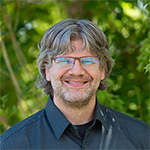Engineering is an in-demand career that applies mathematics and science to solving real-world problems in virtually all aspects of our lives. Communication networks, transportation systems and vehicles, medical implants, water treatment plants, and even personal protective equipment all require different types of engineers to design them.
If you like math and science, want to change the world, and can think creatively, then engineering may be a career for you.
Register in Engineering Courses
Before you can register in a course, you must be accepted into an NIC program. You can study Engineering through the following programs, or as an elective from any NIC program:
Career Opportunities & Transfer Possibilities
During your time at NIC you’ll explore the foundations of engineering and discover the engineering specialty for you. NIC’s transfer agreements mean you can smoothly transition to continue your path to an accredited engineering degree and your Professional Engineering (P.Eng) designation. Along with NIC’s formal transfer agreements, many NIC first-year courses also transfer to other institutions, including UBC and SFU. Please contact an NIC educational advisor for more information.
Biomedical Engineering
Biomedical engineering combines biological sciences and engineering to advance the health care industry. Biomedical engineers work to bridge the gap between medicine and engineering and work on the development and maintenance of a wide range of health care equipment and technologies including diagnostic and monitoring equipment, therapeutic medical devices and biocompatible prostheses. You can transfer to UVic’s Biomedical Engineering program through NIC’s guaranteed transfer agreement with UVic.
Civil Engineering
Civil engineering focuses on the physical environment including buildings and infrastructure with the goal of applying scientific principles to solve the problems of society. Civil engineers design, build and maintain roads, bridges, buildings, dams and pipelines. As a discipline, civil engineering has a range of sub-disciplines including geotechnical engineering, structural engineering, transportation engineering and urban engineering. You can transfer to UVic’s Civil Engineering program through NIC’s guaranteed transfer agreement with UVic.
Computer Engineering
Computer engineering combines computer science and engineering principles to design and develop hardware for computer systems. Computer engineers work to make systems smarter, faster and more efficient. They develop systems to control everyday devices such as vehicles and develop computer control systems for automation and robots. You can transfer to UVic’s Computer Engineering program through NIC’s guaranteed transfer agreement with UVic.
Electrical Engineering
Electrical engineering focuses on the study of electricity, electronics and electromagnetism. Electrical engineers work on electrical systems on large scales such as power generation and transmission, renewable and sustainable energy and electrical power systems within vehicles, planes, ships. You can transfer to UVic’s Electrical Engineering program through NIC’s guaranteed transfer agreement with UVic.
Mechanical Engineering
Mechanical engineering applies engineering principles to the design and maintenance of mechanical systems. These systems include turbines, internal combustion engines, conveyer systems and tools and equipment that involves movement in both small and large scale. After completion of NIC’s Engineering Foundations certificate, you can transfer to UVic’s Mechanical Engineering program through NIC’s guaranteed transfer agreement with UVic.
Software Engineering
Software engineering focuses on applying engineering principles to the development of software. Software engineers develop large, complex systems and work with computer programmers to meet the needs of the end user. They work in a wide variety of sectors that use computer tools in their day-to-day operation. You can transfer to UVic’s Software Engineering program through NIC’s guaranteed transfer agreement with UVic.
Meet the faculty
Jason Diemer

Faculty
Mathematics-Science
MSc in Applied Mathematics (Western University, 1995)
Subjects: Mathematics, Physics, Statistics